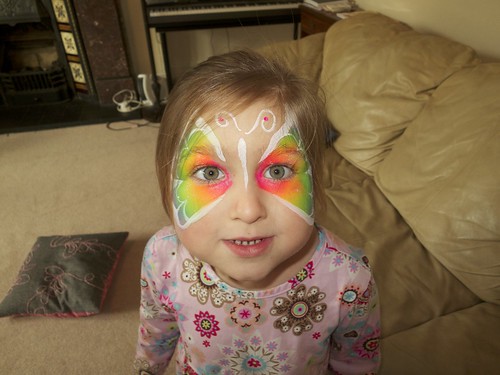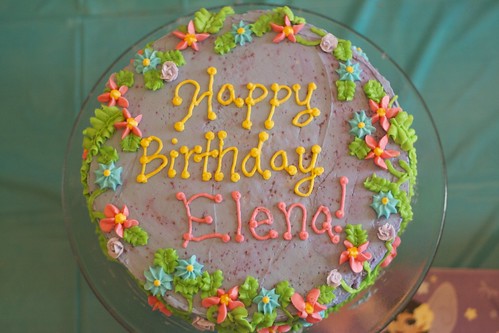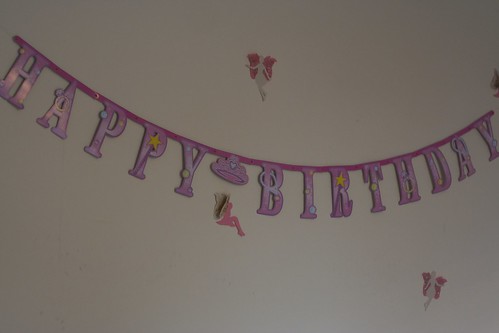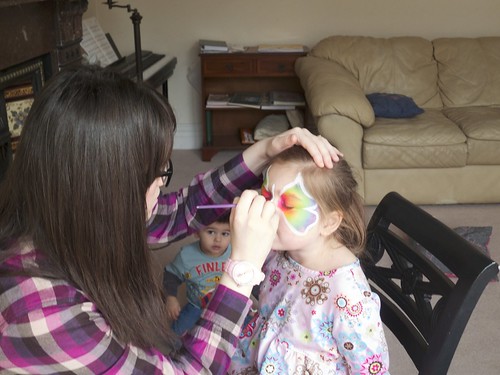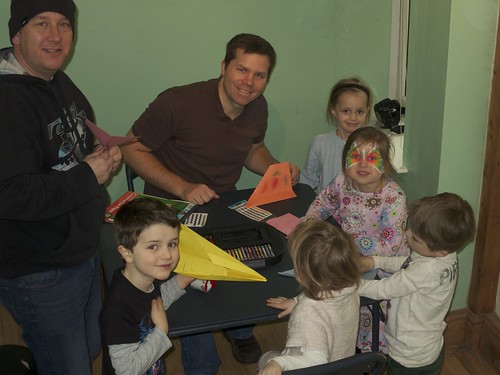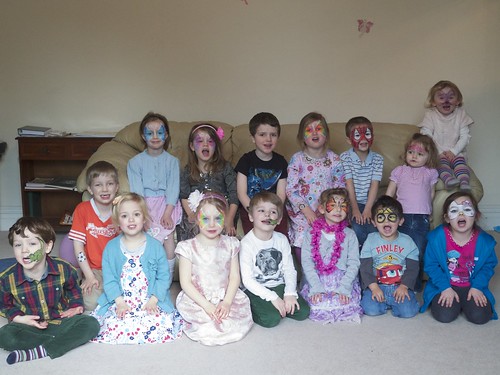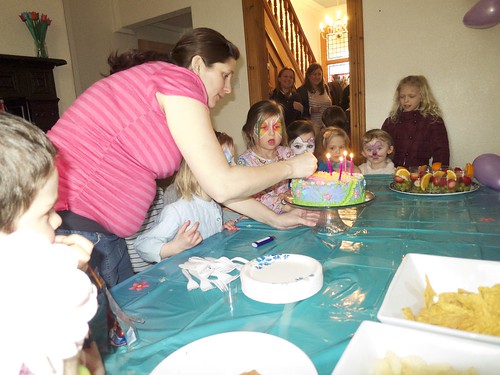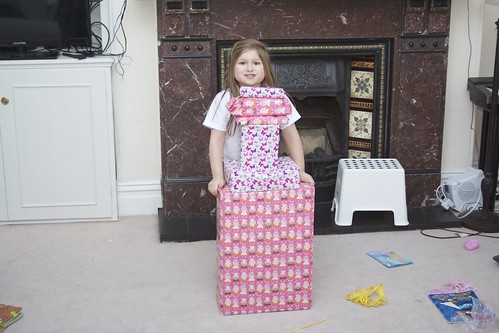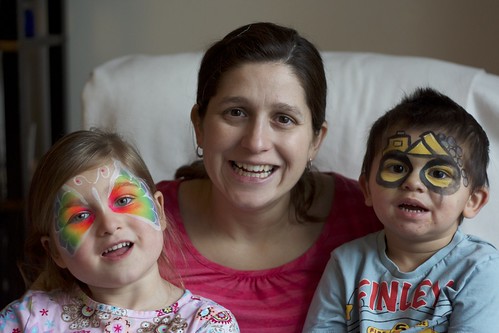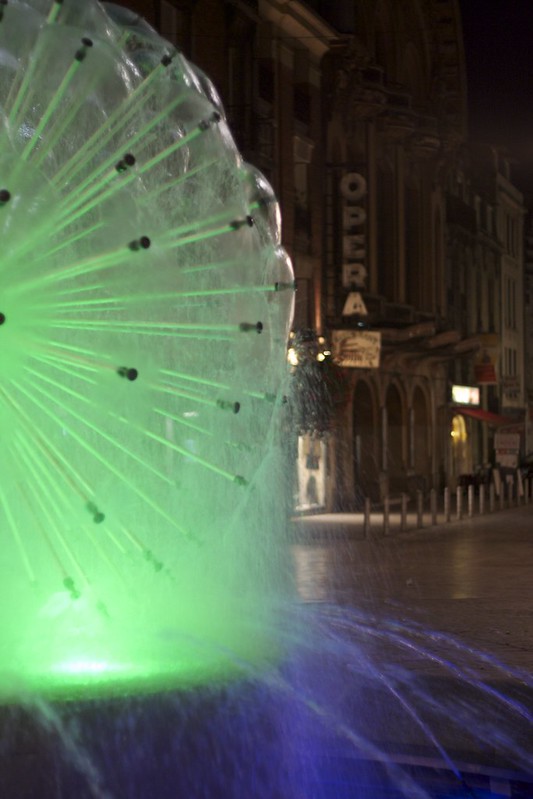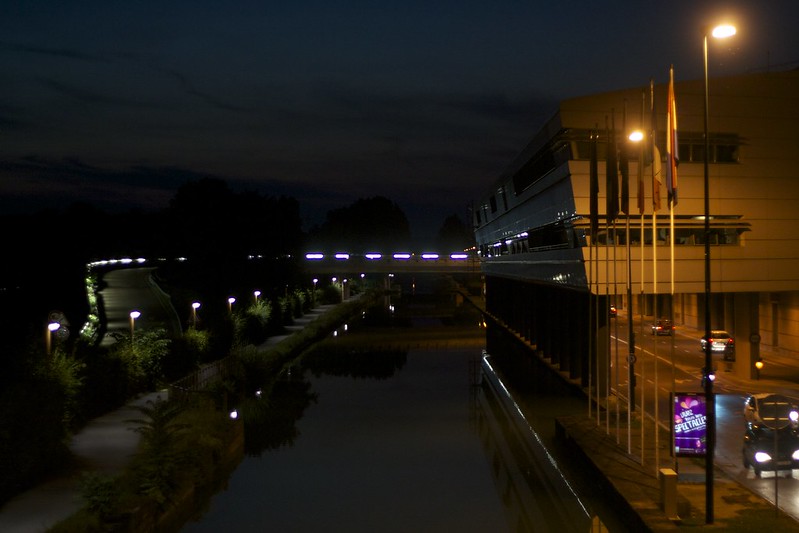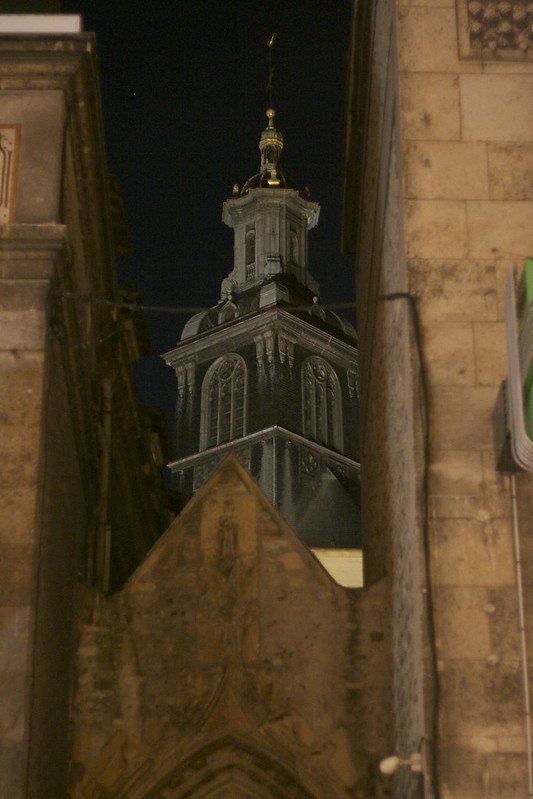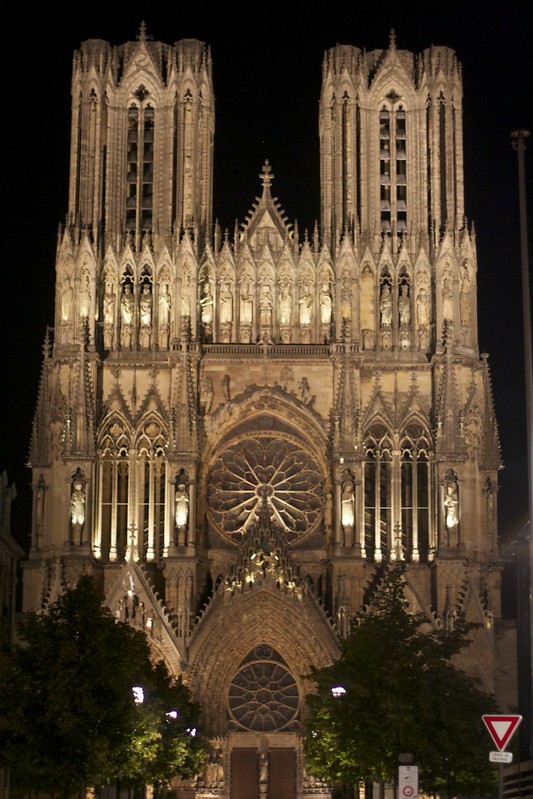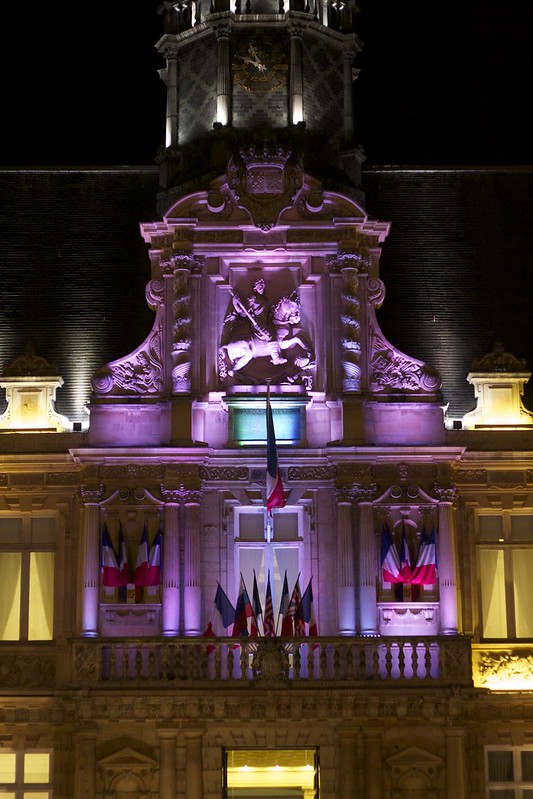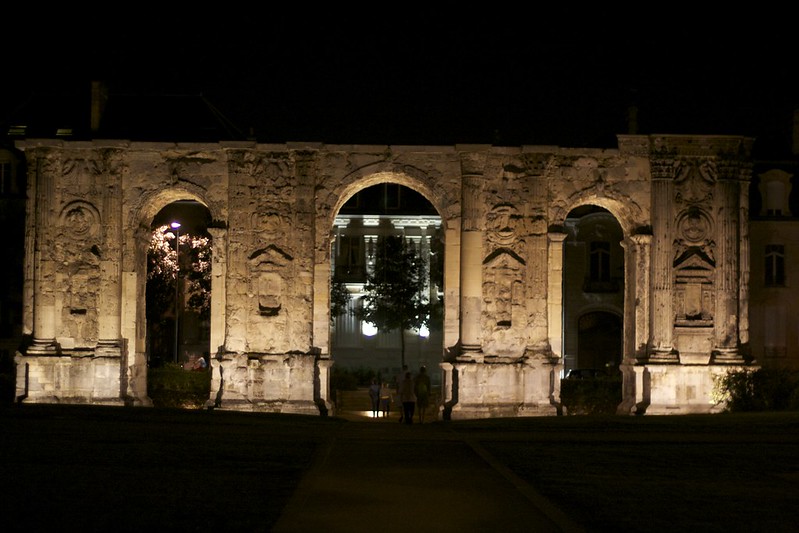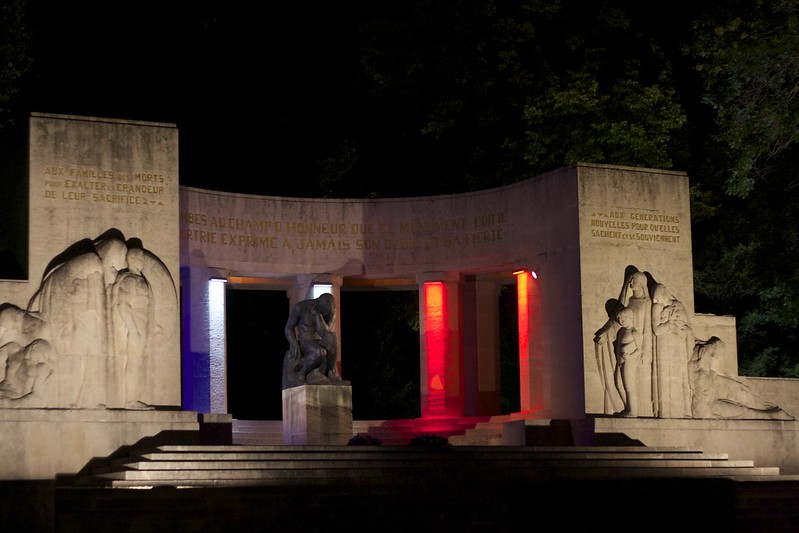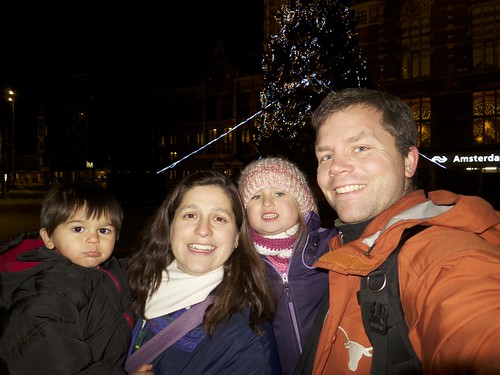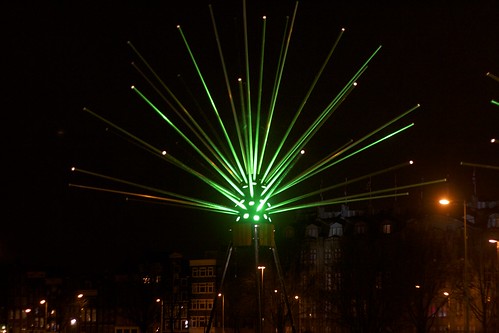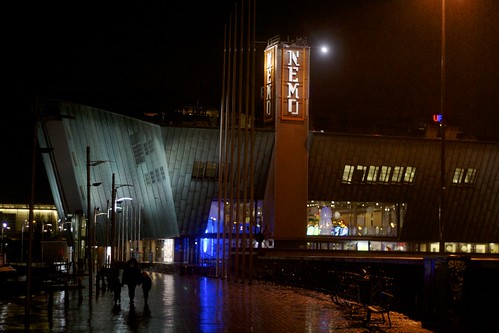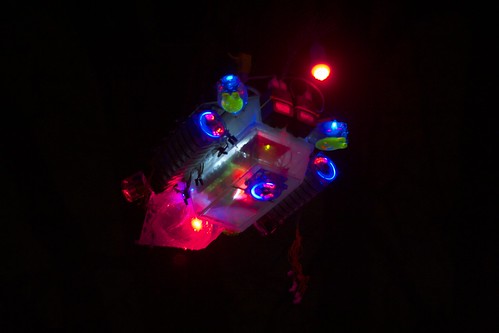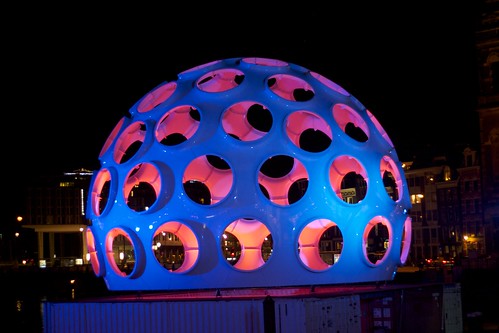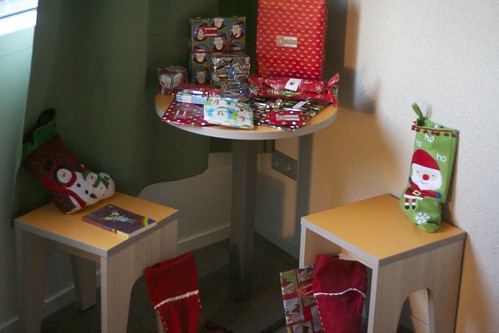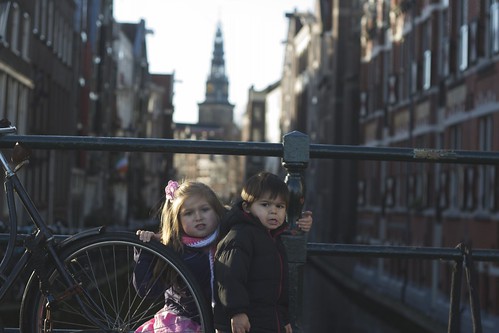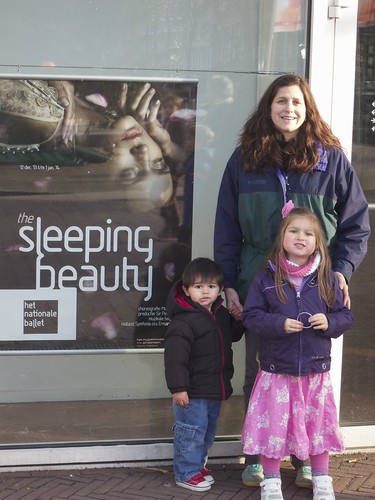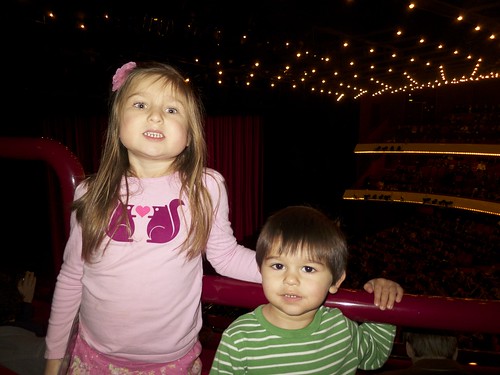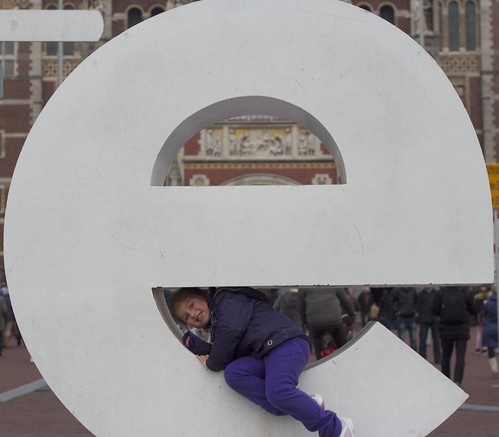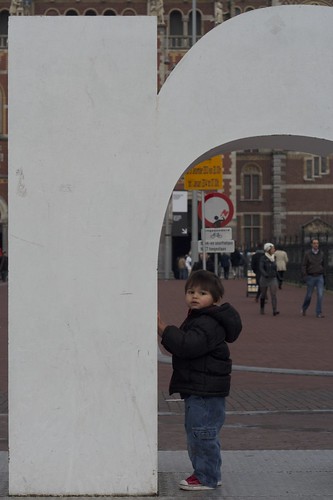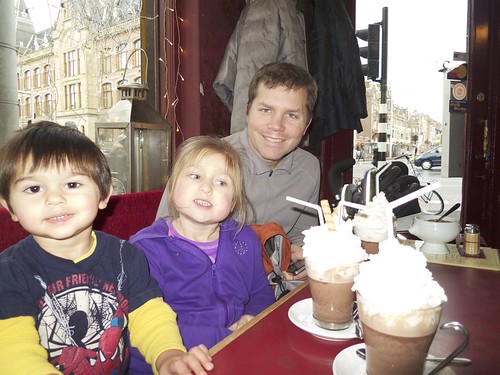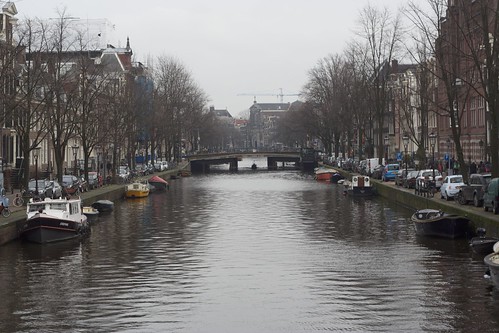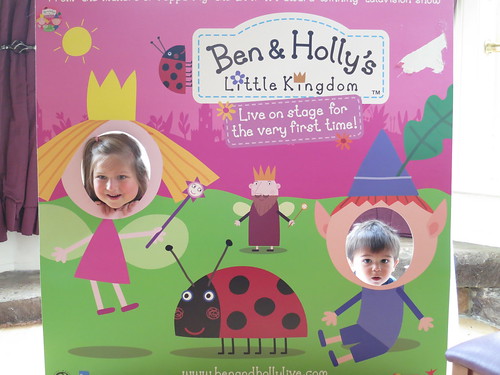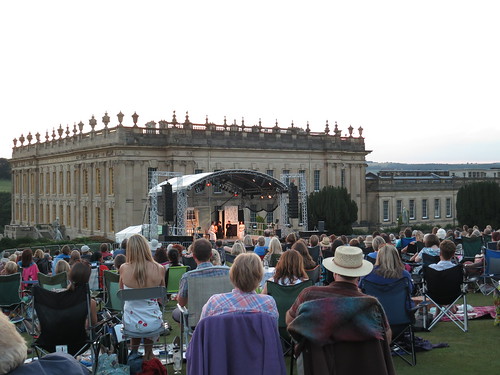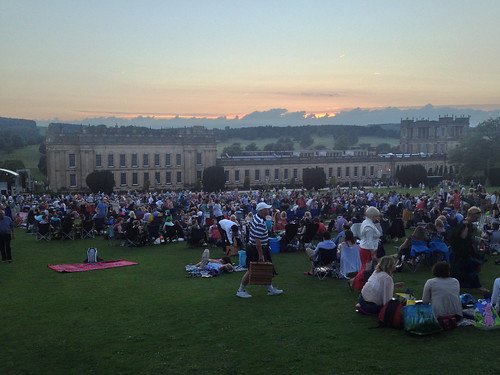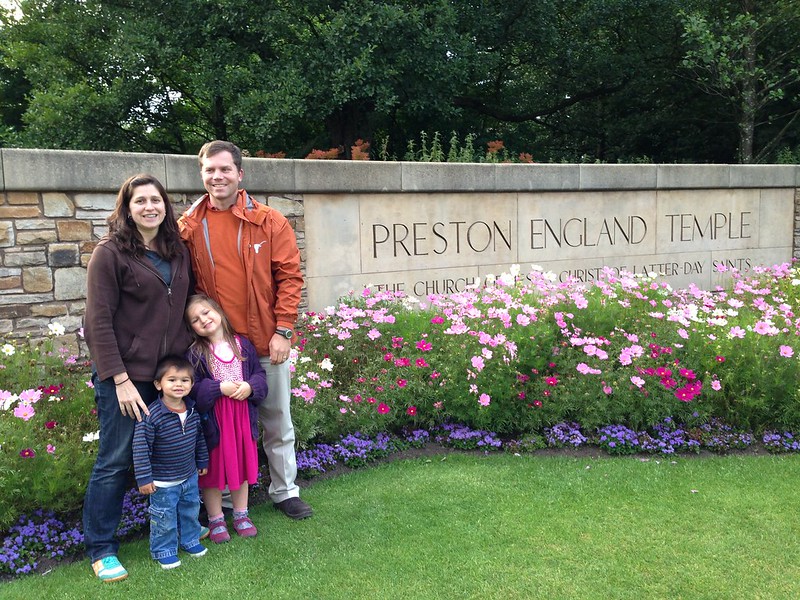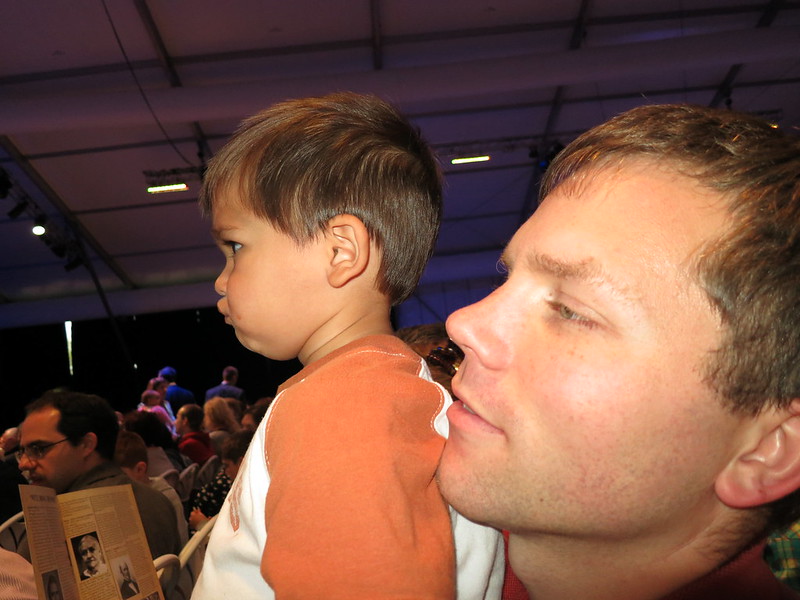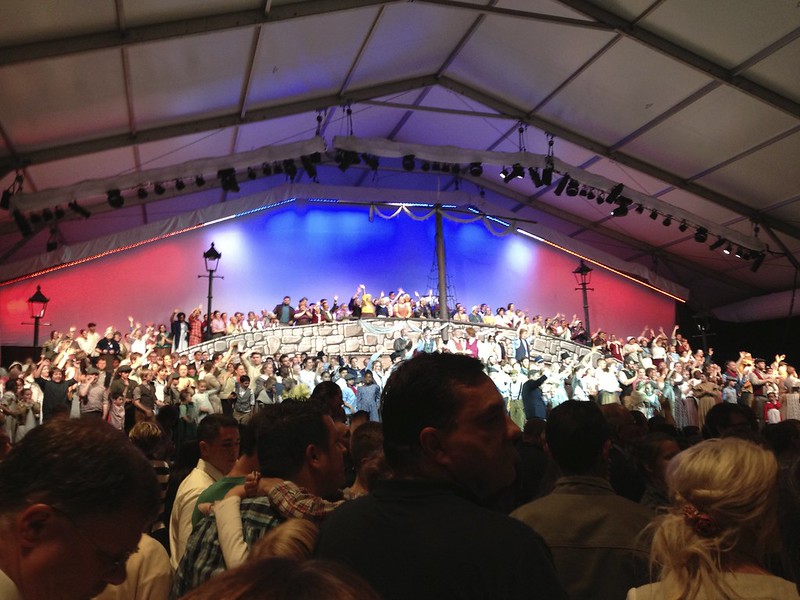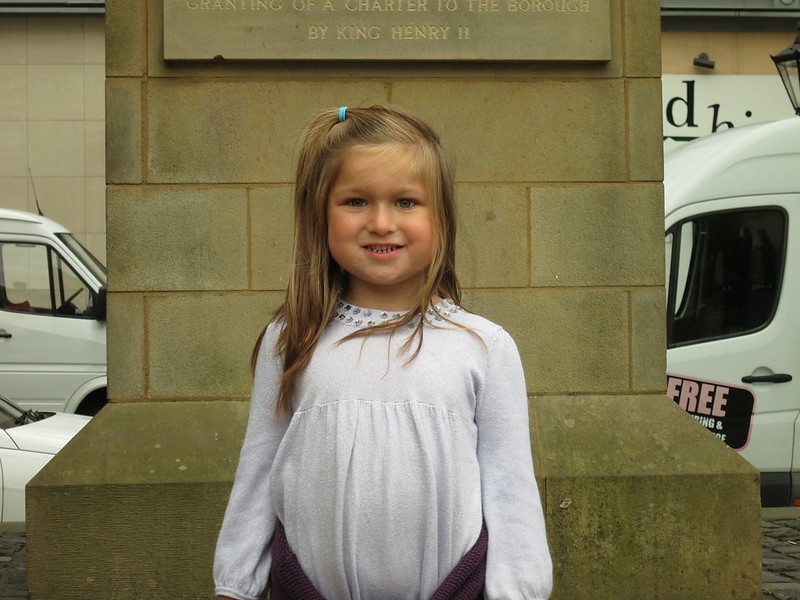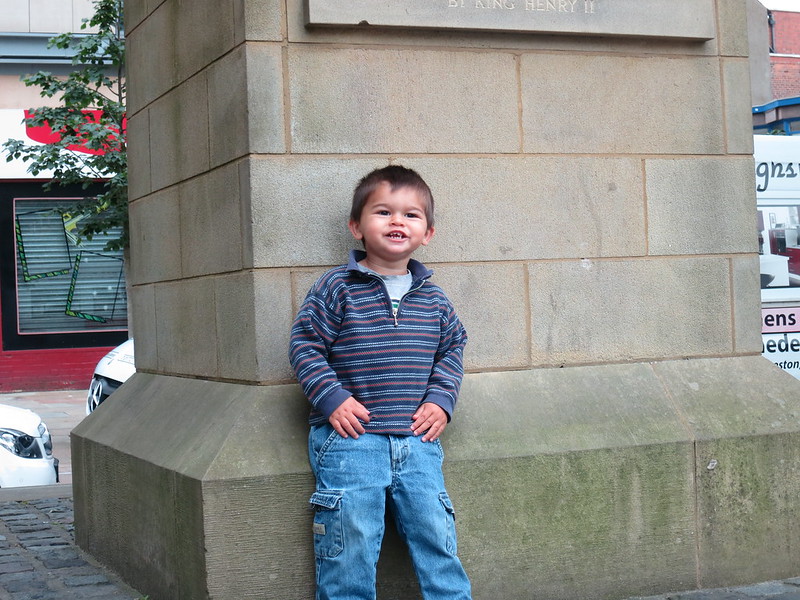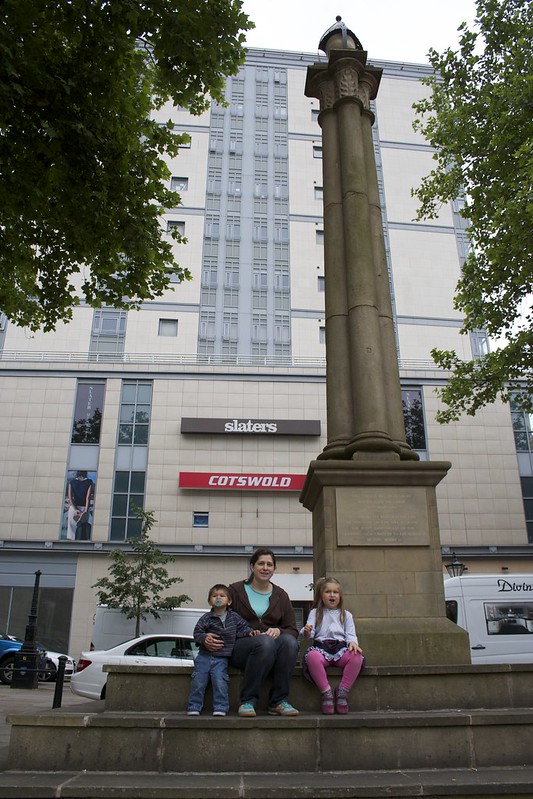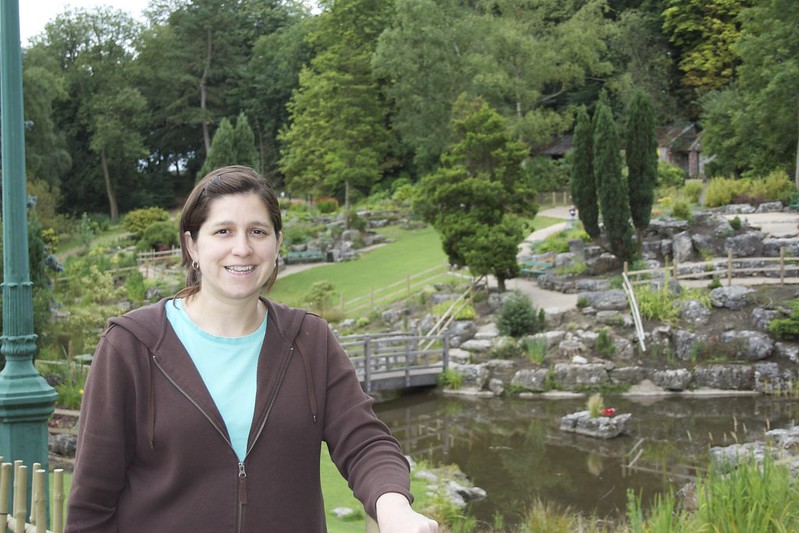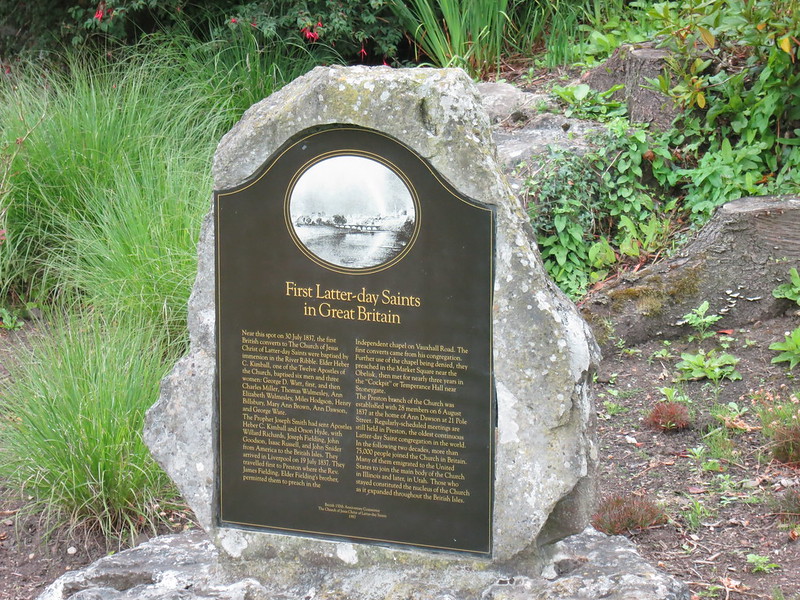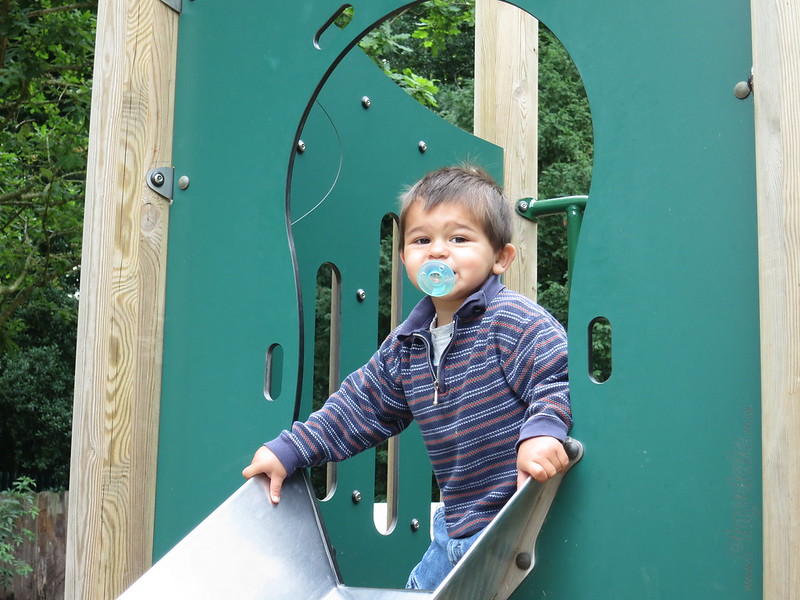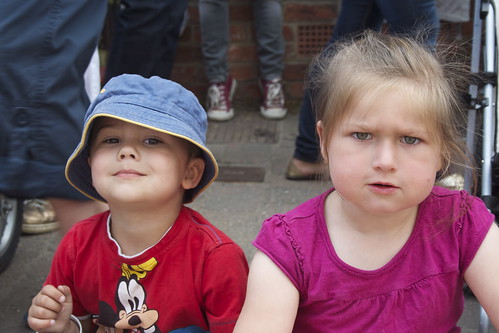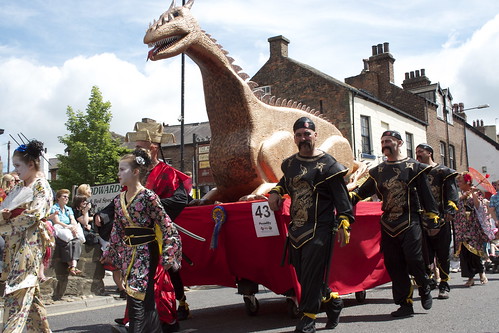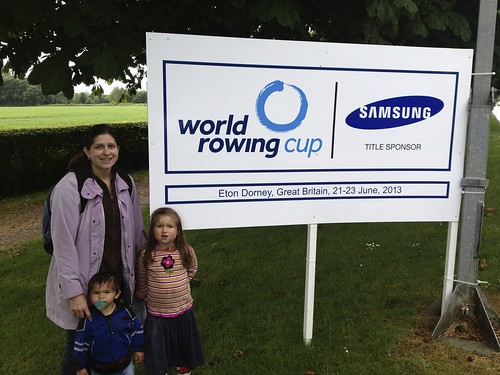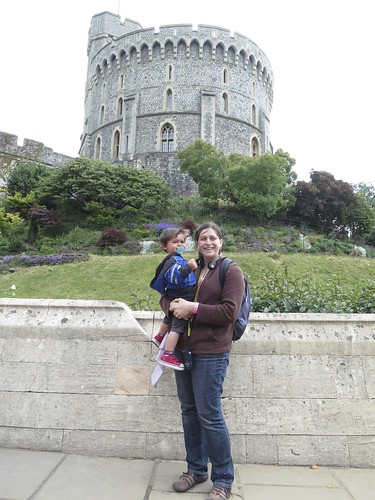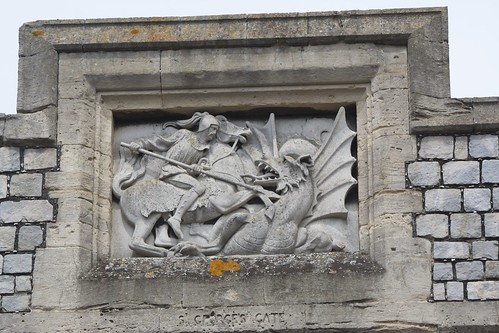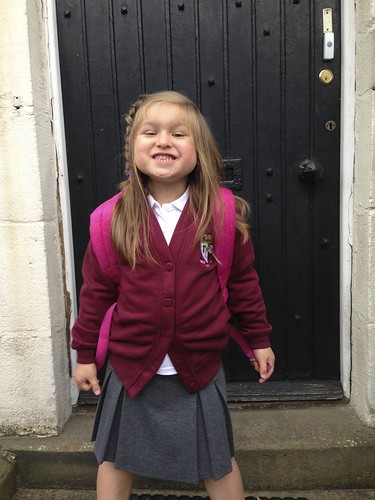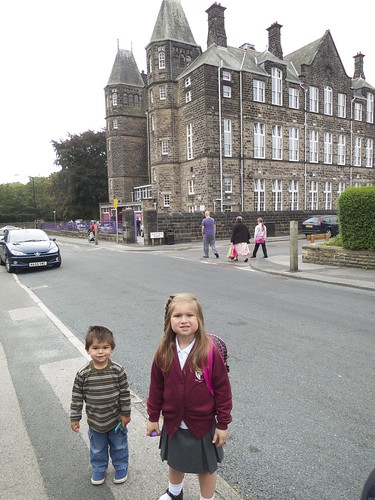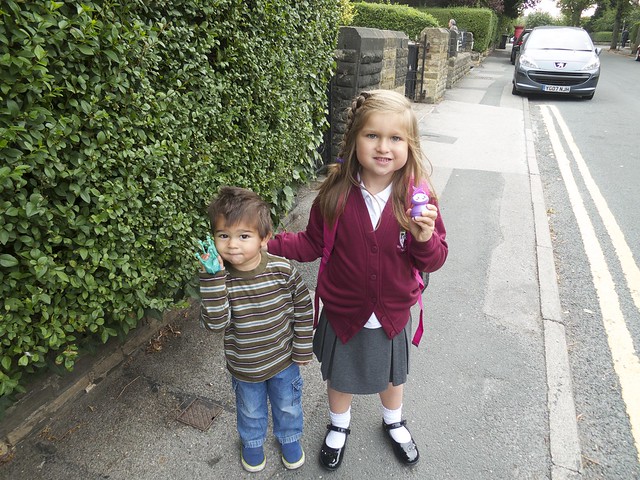The Number Field

Elena's Fifth Birthday by Jenny, July 09, 2014
Elena had been talking about her own birthday party ever since Roman’s last August. On an almost weekly basis she announced to me new school friends she would like to invite. And of course, she had waited in great anticipation as her school and church friends have celebrated their own birthdays. So, when I told her it was time for us to start planning her party, she was ecstatic.
February in Northern England is cold, so after looking at other possibilities, we decided we could hold the party at our house. I decided that 15 kids would be more than enough to fill the house (especially considering the likelihood that many of their parents would also stay for the party). When it came time to make the list, there were a couple more she wanted to add, and then we remembered we had left out some good friends so they were also added. In the end, we handed out 20 invitations and it was exciting to have so many friends to invite. After the invitations were handed out and before the date of the party Elena tried to add more people. Basically, she wanted everyone in her school class and the rest of her grade (they do a lot of activities together but 40 kids is too many!) and attempted different strategies to try to convince me to send another wave of invitations. I held strong to our original cap of 20.
On the day of the party a large sign on the front door welcomed our party guests. Mark and I had been up late the night before setting up decorations, completing the cake, and moving things around. The party went great! We had a face painter in the front room, we decorated cupcakes with frosting and sprinkles in the craft room, and downstairs Mark led a paper airplane activity: first the children constructed and decorated the planes, then guided them through an obstacle course. Of course, in between these activities the kids did plenty of playing and running around. We managed to successfully gather the kids before lunch and got them to sit still long enough to get a picture. Then we served kid favorites: hot dogs, chicken nuggets, fruit cups, chips, and Capri Suns. I worried that we wouldn’t have seats for everyone, but hoped they would be happy to sit on the floor, and they were! After lunch the kids raced up and down the stairs following clues for a treasure hunt set by the fairies, in pursuit of their party bags. We had just enough time to sing Happy Birthday and eat cake before parents started showing up and everyone headed home. Even though they had a lot of fun, the children seemed surprised that we didn’t play any of the standard party games, like Pass the Parcel or Musical Statues. It was a great morning and we had lots of fun, but I was exhausted by the time everyone left!
Reims by Night by Mark, July 07, 2014
Last summer, at the end of our big European road trip, we spent one night in Reims, France. Jenny graciously agreed to stay in with the children while I went out to explore the city and take some photographs. French cities really come to life at night—both with people and with light.
Christmas in Amsterdam by Mark, July 07, 2014
Last year, we decided to try having an adventure for Christmas, even if it meant we would spend Christmas morning away from home. We looked for a good holiday destination that would also fit within our budgetary constraints, and decided to go to Amsterdam. I was particularly influenced by the promise of a Festival of Lights. We chose to take the ferry, but leave our car behind, relying instead on mass transit. Little did we realize the risk inherent in those choices and the negative impact that they would have on our trip.
Two days before Christmas, on the day we were due to depart, the news reports were focused on the historic rain and wind all across Britain. As soon as we boarded the ferry, it was clear that it would be a rocky ride. The captain warned the passengers that we would be on the sea longer than usual, because we would not be allowed to enter the port the following morning until the waves had subsided, which they predicted wouldn’t happen until at least midmorning. It was a rough night for all of us; Jenny, Roman, and Elena all battled with seasickness and I even felt some queasiness come on once or twice. We didn’t sleep much. In the morning, the captain took pity on us and announced that they would have some special free movie showings in the ship’s theaters, one of which was Frozen. Elena and I went to that one, arrived a little bit late (due to more seasickness), and sat down just in time to see the parents’ ship lost at see. All the adults in the room gasped, although I don’t think the kids made the connection. Later, the crew opened up the restaurant for a free brunch—at least for those who could manage to eat anything. By that time, we were getting close to shore and the ship was much steadier so even Jenny managed to eat a little.
Unfortunately, she was not fully recovered, so the ninety minute bus ride to Amsterdam was an agonizing experience for her. I did my best to keep Elena and Roman happy and under control, but we were all pretty drained by the time we arrived at our destination, Amsterdam’s central train station. We eventually figured out which train to take to our hotel (it was just one stop away), and finally made it to our room. After an all too brief recovery period, we decided to return to the city to find some dinner and explore the festival of light. We were still so tired and hungry. I assumed that the festival trail would take us by a good restaurant pretty quickly. I was completely and utterly mistaken. We later learned that we would have had better success if we had taken almost any other direction. We had our chances—a Chinese restaurant that looked too expensive and didn’t appear to have a kids menu, a place by the library that looked closed but probably wasn’t—but we bypassed them and soon found ourselves crossing the river on what appeared to be a bridge to nowhere. A few long blocks later we found a hotel with an open snack bar and ordered several warm ham and cheese sandwiches, which seemed to be the main thing on offer. I remember being frustrated that Elena and Roman didn’t eat as much as they should have, despite their complaints of hunger and the kid-friendliness of the food. In any case, that dinner was the turning point of the whole trip.
After dinner, with renewed resolve and energy we decided to give the festival another try. When Jenny was a child, her family had a Christmas Eve tradition of driving around town to see the light displays on people’s houses; we try to preserve this tradition in our family, and the Amsterdam light festival was supposed to be an interesting twist on the theme, but the differences were pretty extreme. Instead of trees wrapped in strings of brightly colored bulbs and giant inflatable snowglobes inhabited by Mickey Mouse and similar characters in Santa suits, what we observed would probably best be called experimental art. There were paper lanterns that were powered only when visitors turned their cranks, and a series of windows that appeared to be inhabited by people from a bygone era. Upon approaching each window, the character inside came to life and started barking! Many of the other exhibits would be even harder to to describe. My favorite was Buckminster Fuller’s Fly’s Eye Dome, flooded with light from inside and out in ever-changing colors.
Elena and Roman slept very well that night; I think we all did, although Jenny and I did manage to keep ourselves awake for long enough to get things ready for Christmas morning. Elena and Roman were excited the next morning to see that there were presents and stockings; Santa had found us in the hotel! Not all of our presents made it there, and we had to wait until returning home to find the rest of them. In fact, we opened presents on no fewer than four occasions during the Christmas season. For the immediate circumstances, perhaps the best gift was that our stockings contained enough chocolate to keep us going strong for the remainder of the trip.
We were lucky to be able to participate in a national tradition by attending a special Christmas matinee performance of the ballet Sleeping Beauty by the national Ballet company. Even though we wore the best clothes we had brought, we felt rather underdressed compared to many of the other patrons. Elena loved the performance, especially the princess and the good fairies. Roman tried his hardest to stay with it, but we could tell that it exceeded his attention span, so it took some effort to keep him quiet as the performance proceeded. After the performance we ate dinner, then made our way back to the train station. Instead of heading straight home, we decided to explore some more and quickly found the Christmas market, where we enjoyed a delicious dessert waffle dipped in chocolate and piled high with whipped cream.
The next day we wanted to rent bicycles and ride around the town, but hadn’t realized that many businesses, including the bike shop, would still be closed for Second Christmas, or what the English call Boxing Day. We ended up creating our own walking tour instead, starting with the Christmas markets, proceeding through the central shopping district towards the bulb and flower markets, and then on to the main museum district. If we had been alone, Jenny and I would have probably gone to the Rijksmuseum or the Van Gogh museum, but with tired children we just couldn’t convince ourselves that the cost-benefit tradeoff would be in our favor and instead stopped at a nearby cafe that served decadent hot chocolate. After that short break, we started our trek back through the Vondelpark and the touristy Leidseplein area, then up the canal to the Anne Frank house, another place that we would like to see, but didn’t think would be appropriate for Elena and Roman. It was a tiring day for all of us, but I really do love walking the streets of the cities we visit, getting a feel for what life is like there. More than anywhere else we’ve been, Amsterdam reminded me that World War II was not that long ago; the scars and memories still seem fresh. But at that point, Jenny asserted that she was done with walking for the day and we finished our circuit by catching a tram that was headed towards the central station.
On our final day, we decided to venture inside the Royal Palace, a historical building that had really caught our attention. It was a good choice for us—impressive, but not so much that we couldn’t see it all at once, and enough room that the kids could move around freely, especially in the central hallway under the watchful eye of Atlas. For most of the building’s existence, Holland didn’t have a king, so it was only briefly used as a monarch’s residence. The childrens’ audio tour was narrated from the point of view of Louis II of Holland, one of the youngest and shortest-reigning monarchs ever; after his father abdicated, he was in power for only about a week before his uncle Napoleon Bonaparte asserted his cominance and dissolved the monarchy. Elena and I had a good time looking for clues to solve the riddles and puzzles in the activity that went along with the tour.
With just a little more time to kill before the start of our return trip, we decided to visit Amsterdam’s famous main library. It had a nice children’s area, with a very impressive piece of kitsch artwork: a treehouse full of mice engaging in every imaginable activity. But we were tired and bracing for the trip ahead, so we didn’t enjoy the library as much as we might have under other circumstances. At least it was warm, and not too far from where the bus would pick us up. We made it in plenty of time, and although our return trip wasn’t perfect, we didn’t have to face any of the worst elements of the outbound trip. When we finally got home, we were exhausted, but happy to have seen and experienced another new place.
Ibiza by Mark, June 29, 2014
For the fall half-term break, we wanted to go someplace sunny, to load up on Vitamin D and memories of the sand and the surf as a defense against the long, dark winter that was just beginning. Jenny found a deal on a flight to Ibiza, a Mediterranean island off the south coast of Spain. It’s best known for wild nightlife, but we were pretty sure we would be able to find activities to suit our schedule and interests. As soon as we landed at the aiport and stepped out into the warm air and palm trees, we knew it would be a good trip.
We had rented an apartment all the way across the island from the airport, but it was only an hour’s drive–even with the windy roads that took us over the hills that guard the northern coast. From the balcony of the apartment, we had a great view of the beautiful beach below. Elena and Roman could hardly wait to put on their swimsuits and get out there. We bought some buckets and shovels on the short walk down there, and in the process came to realize that the season was just about over, and most of the shops and restaurants in the area would be closing for the winter during our stay. They may have removed all the lounge chairs from the beach and taken the glass-bottomed boats out of the inlet by the last day of our visit, but we didn’t need those things anyway. Elena and Roman had so much fun. They couldn’t get enough of running in and out of the water, building sand castles, dumping sand in the water, running in and out of the water some more, getting sand everywhere.
Even though the beach by our hotel probably would have been enough to hold Elena’s and Roman’s attention for the whole week, Jenny and I wanted to get out and explore the rest of the island. We spent one afternoon exploring the fortress walls and alleyways the ancient D’alt Vila (high town) in Ibiza Town, imagining what it would have been like to have lived there centuries ago. Another day, we ventured to Ibiza’s second city, Sant Antoni, where we walked along the pier and watched the ferry set off for the mainland before turning into town, wandering through streets that seemed deserted, but would clearly have been pulsing with energy every night during the summer. Another day we visited the hippy market outside of Santa Eularia, where we bought a painting from a local artist as a souvenir. That evening, we ventured into the town and found a place that seemed to be less affected by the seasonal changes we had observed elsewhere.
Other adventures took us further off the beaten trail. We tried to hike to a scenic lighthouse we could see in the distance from our hotel. Our attempt to go in that direction quickly turned into a directionless bushwack for which we were not prepared, so we retreated until we found a trail and enjoyed a nice, relaxed hike through the forest. Even though we were very satisfied with the beach that was closest to us, we wanted to experience some of Ibiza’s other offerings. One afternoon we found a secluded cove that appeared to once have been the home of a large abandoned structure, which might have once been a resort hotel. It was a rocky beach, so the kids and I spent a lot of time throwing rocks in the water, and even convinced Jenny to join in a little bit.
A longer excursion took us to a beach that overlooks Es Vedra, a small island off the western coast of Ibiza which is rumored to have mystical properties. The drive there was not the easiest–we made at least a few wrong turns, and Jenny got rather car sick–but it was worth it in the end. The beach was absolutely beautiful, and the sight of Es Vedra was as magical as promised. We didn’t go into the water very far or for very long, because of the presence of jellyfish, but even that wasn’t so bad, because we caught one of the jellyfish in a bucket and were able to examine from up close. We even met another family that was originally from the USA, though now living in Barcelona. They had a daughter named Elena who was about the same age as our Elena; the two of them enjoyed playing together and trying to catch lizards.
One element of the trip that perhaps wasn’t quite as good as we had hoped was our dining experience. For breakfast and lunch, we did the best we could with the things that the one nearby bodega still had in stock. We did have some very good dinners, but they weren’t necessarily Spanish cuisine, including hot dogs and burgers at an American-themed diner, and Mexican food at a place called Taco Paco. Other times, we had to take what we could get because most of the restaurants were already closed for the season. Overall, the food was just a small blemish on an otherwise lovely trip. We were sad to leave it behind, but the fact that the airport was nearly empty on the day was a reminder that we were among the last tourists on the island, and a signal that it really was time for us to head home, back to work and school and the cold winds and rains of Yorkshire.
Time Out for Parents by Mark, January 14, 2014
We hadn’t even been in our house for a week when I had to go back to the US. On short notice, someone from my team was needed to go on a business trip and I drew the short straw. Neither Jenny nor I was thrilled with the prospect of me leaving while so many of our boxes were still packed, but lots of friends promised to help out if she and the children needed anything, and she let me go. The work I did on the trip was rather unremarkable, but at least I was able to make the best of my free time. At the beginning of the trip I went to church and spent the afternoon with my Dad, enjoying fresh vegetables from the garden with our dinner. In the middle of the week, I had a very enjoyable evening out with Leisa, Sam, and Vera. The night before I left, I even got to pick Laura up from the airport, since she was coming into town for business of her own. I went rock climbing at a gym with a friend of mine. I also had a rather substantial shopping list from Jenny that felt at times like a scavenger hunt–I certainly didn’t plan to spend quite as long as I did flipping through the clearance rack at The Children’s Place looking for somersault shorts for Elena, and if I hadn’t seen it myself, I wouldn’t have believed that two Wal-Marts would be out of stock of the one thing that Jenny asked me to get there. During the week, it wasn’t easy being away from Jenny, Elena, and Roman, but I managed to keep myself busy. Jenny tells me that they did their best to be happy when I called, so that I would get happy vibes and be happy to come back home. There was one part of the trip which was, without a doubt, better without children: the transoceanic flights. Upon my arrival home, I was impressed by how much Jenny had unpacked. I left behind a shambles of boxes and packing paper, but returned to a place that felt very much like a home.
It wasn’t until my birthday that I had a chance to go on another significant solo adventure. I had announced to Jenny that I wanted to take the day off and go on a long, challenging hike. When she asked whether I was doing this because I needed to “find myself,” I explained that I wanted to go out precisely because I already know myself; I know that I love getting outside to face a challenge, and it had been a very long time since I had done that, so that was what I thought would bring me the greatest fulfillment on my birthday. I settled on a twelve mile loop through the Yorkshire Dales with two significant ascents. The trail was tough from the very beginning, and as soon as it leveled off the weather turned, and I had to fight against wind-driven rain for much of the rest of the day. The most moving sight on the trail was a memorial for a World War II plane crash, erected by the lone survivor. Immediately after that, the mud started; over the next several miles I was almost swallowed by the bog twice. Already exhausted when I approached it, I met the most serious challenge of the day: an ascent of Great Whernside that seemed to go straight up. Sadly, I wasn’t able to enjoy any views from the peak, as the clouds had descended and I was barely able to see the trail five feet in front of me. I escaped the cloud cover early in the descent, and was able to see the beautiful Dales laid out before me with the picturesque village of Kettlewell in a valley not too far ahead, a welcome sight because that was where I had left my car. Back at home, Jenny and the children were putting the finishing touches on a beautiful Angry Birds birthday cake. I cleaned myself up, and we had a wonderful dinner followed by opening presents. Roman’s present for me was a bag of Cheetos, but he was rather indignant that I didn’t want to open it up and share the snacks right that second. It was a wonderful and memorable birthday; I’ll certainly plan for future birthday hikes, even if I don’t make it an annual tradition.
I’m afraid that this year Jenny’s birthday wishes weren’t fulfilled as well as mine were. It just wasn’t a good time to have people over; we were dealing with some lingering sniffles and still recovering from a weekend trip so our plans to have a real party never materialized. Instead, we celebrated her birthday with a quiet evening at home. She opened presents–I did manage to help both Elena and Roman give her their own present–and I made a chocolate cake with chocolate frosting, as Jenny had requested. She did have a birthday party earlier in the day; her visiting teacher had invited Jenny and several of their mutual friends over for lunch. I’m sure Jenny suspected something, but it was still a very nice surprise.
Jenny did get to go on a solo trip of her own a short time later, back to Texas for her stepbrother Shaun’s wedding. The trip almost didn’t happen: even though she was very excited at the prospect of seeing her mother and all her brothers, we just couldn’t financially justify paying full fare for a ticket. I tried all my money-saving tricks, then looked at every combination of miles and points I could think of, and it just wasn’t coming together. Jenny was dejected, but then I remembered one account that had a whole bunch of bonus points and booked the ticket at a price that worked for us.
Despite her dislike of lengthy travel days, Jenny was very happy to be back in Texas with her family. She had a great time; when we were talking about it afterwards, she said that it was nice to enjoy each other’s company without any of the petty rivalries of childhood (except for her oldest brother demanding shotgun on the long ride from Buda to Houston). She stayed at John’s house, so she had lots of time to see nephews and nieces, which included meeting new arrival Arden for the first time. It was nice for her to be able to announce in person that we’re expecting a baby in May. They ate lots of tasty Tex-Mex and Barbecue, and Jenny got to see her good friend Vivian. The wedding itself was very nice, which is good because it was the main purpose for the trip. Unfortunately, the return flight was not as nice; Jenny described it as one of the worst of her life due to the constant turbulence, and then she had to drive back home from the airport on her own, which was not easy in her sleep-deprived, motion-sickened state.
While Jenny was gone, Elena, Roman and I managed pretty well, in part because we got quite a bit of help from our friends. On the morning that Jenny left we went to the movies to keep the kids from being too sad. I had Monday off, but had foolishly scheduled some things at work that required my presence on the following days, so Roman spent that time with his friends Maggie and Will and their mom Michelle, which he really enjoyed; one night they invited us to stay for dinner, which we all appreciated. Vanessa picked Elena up from school and taxied her over to Maggie and Will’s house so I could finish up at work, and on the morning when Elena refused to attend the “Breakfast Club” before school, I was able on short notice to drop her off at Alex’s house–her girls go to the same school. Both Jenny and I are grateful to have such caring friends who help us out when we need a hand.
Historic Homes and Churches by Mark, January 03, 2014
Whenever we visit a place that had its heyday long ago, when the life of the people who lived then and there was very different than the life we lead today, I wonder about the way in which technology has progressed through history. Why wasn’t the printing press invented in Roman times? Why wasn’t electricity harnessed much earlier? Could it have happened? What would life have been like if one or more of these advances had come about earlier? Would that have allowed the wealthy and powerful–those with the means to build castles and cathedrals–to gain even more wealth and power, or would there have been social upheaval, leading to a much earlier establishment of the middle class?
Skipton Castle is one of the oldest castles in this area, having been built in 1090. Part of it is still in use as a private residence, but much of it is open for tourism. It’s close enough for an impromptu excursion, so we headed over there on a sunny Saturday morning when we didn’t have any other plans. We were in luck; there happened to be a troop of English Civil War reenactors encamped at the castle for the weekend. On our way in, they informed us that there would be some demonstrations and exhibitions later in the morning. Within the castle, some of the most interesting features were the giant cooking fireplace, the ancient yew tree, and the turret (called a “Princess tower” by Elena) where the effects of the English Civil War are still visible–the wall was partially deconstructed during that time and rebuilt differently afterwards. As we looked out on the castle grounds from above, we could tell that the troops were gathering for their activities. We hurried through the remaining rooms and out to where the reenactors were starting their demonstration. We were standing pretty close as they lined up, pointed their guns forward, and pulled the triggers in unison. I didn’t realize how much the boom would frighten and shock Roman and Elena. They started crying and ran towards Jenny, who guided them to the safety of the castle gift shop. I followed them a few minutes later. We browsed through the gift shop until it seemed like there was a break in the action, then emerged. As we were deciding what to do next, Jenny noticed that the barrage was not quite over. She yelled “run for the exit,” and they managed to be outside the gate before the next boom. It was still pretty frightening for the children, but Jenny’s promise of treats helped them forget their fears pretty quickly.
One weekend of every fall is designated a heritage open day, which means that many of the historic sites don’t charge admission on that day. This year, we decided to visit Temple Newsam. According to Wikipedia, the estate is ancient; it was included in the Domesday Book in the late 11th century. The house itself dates back to the sixteenth century. It’s impressive, of course, but doesn’t have the same sense of grandeur as many of the other mansions. The audio tour of the house was unusual, because it criticized the design choices of one of the owners. In one sitting room, the wallpaper was a prized gift from the Prince of Wales, with a hand-painted Chinese design. The lady of the house wasn’t happy with that, and had bird illustrations from Audubon’s The Birds of America cut from its pages and pasted to the walls, making it both less attractive and much less valuable. The tour was very modern; some of the servants’ quarters were on display. Elena and Roman’s favorite part of the house tour was the room where they got to dress up in period costumes, but their favorite part of the day was when we returned to the nice playground that was adjacent to the car park.
Bolton Abbey is another nearby place we visited on a whim one Saturday when we needed to get out of the house. It was one of the many casualties of the Dissolution of the Monsastaries by Henry VIII, but unlike Fountains Abbey, part of Bolton Abbey has been restored and is currently in use as a church. There was even a wedding in progress when we visited. A ruined abbey is a good place to be with the children, because they can run and jump around, and we don’t have to worry too much, although we do keep them away from the crypts, graves, and anything that has a “no climbing” sign. But after half an hour of looking around and taking pictures, we had exhausted all the angles of the Abbey and were ready to explore the grounds. The stepping stones looked interesting, but the water was too high for us to take a chance. Instead, we found a good picnic spot on the riverbank, where there were plenty of rocks for Roman, Elena and me. Sometimes they don’t think about whether there’s a person in between them and the river before they release the stone. I’d like to think that children many centuries ago did the exact same thing, throwing rocks in the river, while their fathers worked on building the on the hillside up above. After a leisurely lunch mixed in with the rock-throwing, we decided to try a walk on the trail that went upstream from where we were. It was two miles in total, which is ambitious for us, and not long after we set Elena warned us that she needed to use the toilet. We pressed on, hoping to find restrooms at the halfway point. It was not an easy walk but there were distractions on the way, including some physical activity stations and a very interesting money tree. Elena did a great job, as did Roman, and we made it without incident. We rewarded ourselves with ice cream before the walk back, during which we had some more nice views of the abbey.
I guess we had the appetite for one more abbey, this one on the coast in Whitby, with a beautiful view of the North Sea. This one had a different architectural feel, very Gothic; it’s easy to see why it was an inspiration for Bram Stoker’s Dracula. We met up with some friends there, and after the standard drill: touring the abbey, learning about its history–archaeological digs have recovered artefacts from as far back as the first abbey (established in the seventh century), eating lunch, running around, and taking lots of pictures, we descended into Whitby town, a charming seaside resort. It was hard to find parking on a Saturday afternoon, but we eventually found a spot near the monument to Captain James Cook, a son of Whitby who went on to be the first European to visit Hawaii and other parts of the Pacific isles. We did some of the traditional Whitby activities: walking out the quay to the lighthouse, playing on the beach and wading to the waters edge in our boots, eating fish and chips and ice creams, window shopping along the cobbled streets amidst the jewelry shops selling locally-produced jet bracelets and earrings. Much to Elena’s dismay, we abstained from some of the other attractions. She really, really wanted to go on one of the carnival rides, and repeatedly made her voice heard on that topic. We also wouldn’t let her ride on the ponies, and we kept making her walk and walk and walk. She was not always a happy girl. After an interlude during which we watched the swing bridge open up for a ship to pas through, we managed to coax her up the hill back to the car. I let her take a few pictures with the good camera, and she cheered up enough for us to have somepictures taken of all of us under the whalebone arch, with Whibty below and the abbey in the distance. The drive home in the failing light seemed long, especially when we encountered a very serious thunderstorm along the way. It was a relief to arrive home; I think we all slept well that night.
To The Theater by Mark, December 30, 2013
Some of the most memorable events of the past summer were the live theatrical performances we attended. Elena and Roman have always done a great job of adjusting to the changes involved in moving around so much, and we probably don’t recognize and reward that as much as we should. When we saw that Ben and Holly’s Little Kingdom was going to be in town just a few weeks after we moved back to England, we thought it would be nice to take them to see it. Ben Elf and Princess Holly are the stars of an animated childrens TV show that we’ve never actually seen, but Elena did have a Ben and Holly umbrella for a while. On the one hand, the performance itself had a self-contained plot, so we were able to enjoy it even though we didn’t know all of the back story. On the other hand, we would probably have done a better job singing along during the audience participation segments if we had been as familiar with the songs as many of the other audience members appeared to be. All in all, the costumes and props were great, the performance was lively, and both Elena and Roman had a great time.
The next show was a rare treat for Jenny and me. It’s been two hundred years since Pride and Prejudice was first published, which provided the spark for celebrations of Jane Austen and her work all year long. One theater company toured the countryside with a new stage adaptation of Pride and Prejudice that they performed at many of the great houses across the land. We were lucky enough to attend the performance at Chatsworth House, which was one of the inspirations for Pemberley (as I’ve mentioned before). Since Chatsworth House is two hours away from our house, we were especially grateful to be able to make that night our half of an exchange of babysitting services with some friends. When we got there, we were impressed again by how well the British know how to picnic, and felt very unprepared and American. We had fast food for dinner at a rest stop along the highway, and had only brought a blanket to sit on. Each and every one of the thousands of other people had lawn chairs, wicker picnic baskets with full dinners inside, tables set with real dishes and silverware, strawberries dipped in chocolate, and all kinds of beverages whose corks popped festively into the air.
We couldn’t have pictured a more perfect night for the performance. The setting sun lit up the gilded borders of Chatsworth, which made a glorious backdrop for the stage. We were not among the earlier arrivals so we had to sit rather far out, but we were still able to enjoy and appreciate the performance. One thing I didn’t realize until at least intermission was how small the acting troupe was; most performers was fulfilling two or three roles, often taking on different personas in quick succession. I think that I picked up on this indirectly when I noticed that some of their accents seemed somewhat strained; I think this was one method used by the actors to differentiate their characters. Incidentally, I have resigned myself to the fact that I might never be able to understand the nuances of British accents, even if I am starting to be able to recognize some of the differences. My overall impression of the performance was that it was a very good effort to do justice to the original, even though they had to make some sacrifices due to time constraints, for instance by reducing the number of Bennett sisters (sorry Kitty). I am impressed with how well the underlying story has been molded into many different retellings, even while being reminded of the wonderful literary details that are only present in the original novel. Best of all, Jenny and I were able to spend a wonderful evening together, and I don’t regret the wrong turns I made on the trip home that sent us up and down little windy roads in the hills above Sheffield and considerably lengthened the drive.
Our next theatrical outing was rather different from the previous two. It was the British Pageant in Preston, a production by our church which told the story of the first missionaries from the church who were sent to preach in the British Isles, and the converts that heard and followed them. Before the show there were activities for the whole family–games, crafts, and photos in old-timey clothes. In addition to the characters with speaking parts, the production had a chorus of hundreds, all volunteers. Two of the current apostles for our church attended the same performance we did, which must have inspired the performers.
Since much of the action portrayed by the pageant took place in the vicinity of Preston, we spent the next morning exploring a few of the sites mentioned, including the town square with its iconic obelisk, where the missionaries first set out their soap boxes to preach. Interestingly enough, we were approached by a Muslim missionary on that very spot. Later, we visited Avenham Park, through which the River Ribble runs, where the first baptisms took place. We had been told that there was a stone monument to that event somewhere in the park, but we didn’t see it until we had given up and decided to return to the car. Elena and Roman were far more interested in the playground we on the river bank while we were searching. No matter where we are or what reason we have for being there, they’re always happy to see a playground and will always plead for just a couple more minutes. It’s always a sure way to feel more like locals than like tourists.
Great Days Out by Mark, December 29, 2013
We’ve been in the UK for more than six months now, and between all the activities we’ve been doing and the other projects that have captured my fancy, the blog has really suffered. My writing benefits from quiet time and space, which is a scarce commodity when there are so many enticing excursions and events that can occupy an evening, a Saturday, or a whole weekend. However, I’ve made an old year’s resolution: over the next few days I’m going to recap of some of the high points of our time here so far and bring the blog up to date. I’ll start with a few of the excursions from the first few weeks after we arrived.
Last year, when we went to the Knaresborough Bed Races we thought it might be our only chance to see such a crazy event. Although we went again this year, we’re still not ready to commit to making it an annual tradition. The theme this year was “Myths and Legends,” which gave the teams a broad range for creative interpretation, from Guy Fawkes to Roswell, from Fairies to Star Wars, from the Trojan Horse to the Loch Ness Monster and on to Chinese Dragons. We spent the day with friends–Elena and Roman were happy to be in the company of Spencer and Natalie. After the parade of beds, we made our way towards the finish line, with a short detour to find some ice cream along the way. We wanted to see the climactic river crossing, but all the good spots were already staked out, so we settled for an unoccupied spot with a good view of a different part of the course. Elena and I did eventually squeeze through the crowds along the riverbank to get a partial view of the crossing; it was worth it to see the teams struggle with one final challenge at the end of the long race.
Just a few weeks later we headed to the outskirts of London for another sporting event, the Rowing World Cup at Dorney Lake in Eton. The last time we were there it was for the Olympics; we found the atmosphere quite a bit more sedate this time around. The traffic patterns were different, and we ended up making a big mistake by stopping at the first place we saw where someone was holding a parking sign, even though it was at least a mile away from the course. After we battled against the intermittent rain and constant wind all the way along the long walk to the course, we found out that there was plenty of available parking right there. Jenny almost made me go back and move the car, but the races were already getting started. There weren’t many American crews in the event, but Elena was very happy to be able to cheer for the women’s single sculler from the US, who put in a very strong performance in her semi-final. On our way out, we spent time at the exhibitions, exploring different kinds of rowing craft: a Cornish Pilot Gig and a shell built for a race across the Atlantic Ocean. At times on the walk back to the car, it felt almost as long as a trans-oceanic voyage.
Whenever we try to do more than one big activity in a day, we run the risk of having at least one major meltdown, usually from the children. Nevertheless, we decided to take a chance on visiting Windsor Castle on the same day as the rowing, since Dorney Lake is situated so close to Windsor. It was good that we did: the castle was fantastic. The clouds retreated for long enough that we could see the exterior walls bathed in sunlight while the royal standards atop the turrets flapped against a brilliant blue sky. We opted to start our tour by viewing Queen Mary’s Dolls’ House, which was absolutely worth the wait in line. It’s hard to say whether the most impressive thing about the doll house is the collection of miniaturze crown jewels, or the working electricity throughout. From there, we walked through an exhibit showcasing art created by members of the royal family, which is when I started to wonder about their surnames (when she was a child, the Queen signed her paintings “Elizabeth of York”), then moved quickly through the display of table settings and on to the main portion of the tour, the state rooms. Roman was really struggling by this point, but we kept his attention by looking for Saint George and the dragon. The throne room where the investure ceremony takes place, the massive hall where the heraldic shields of all the members of the Order of the Garter are on display, and the extensive armory all made me wish I knew more history, so that I could do a better job of pieceing together all the fragments for myself, and explain it all to Elena and Roman.
In some sense, the history of the United States is more manageable, since it only dates back to the signing of the Declaration of Independence, and we are lucky enough that we can celebrate that holiday with the many other Americans in the community. Elena and Roman had their faces painted and spent a lot of time on the bouncy castle and bouncy obstacle course. Eventually, Elena even got the courage to go down the giant bouncy slide once or twice. Once she had done that, Roman insisted on taking a turn. He wasn’t able to climb to the top himself, so I helped him climb up, then we slid down together. We watched as falconers prepared their birds of prey for a hunting demonstration–my favorite was a falcon wearing a leather helmet–but it had already been a long day and we left to find some food before the show began. We didn’t have the stamina to stay up for fireworks, which can’t start until very late on a Yorkshire summer night, when it’s still light out at ten in the evening.
Less than a week later we found ourselves at the Great Yorkshire Show, which is like a State Fair in the US. There were blue ribbon competitions in every kind of farm-related category I could imagine, including sheep, show pigeons, local cheeses, shearing of sheep, shoeing of horses, and many other things we didn’t get around to. One whole pavilion was full of vendors of all kinds of sweet and savory treats. On our way to the childrens’ activities, Elena and I walked by a display of birds of prey–I thought it was strange to see a bald eagle chained to a perch next to the vultures and owls. Unfortunately, I was so busy going from one thing to the next that Jenny and I got separated and had some communication troubles before getting back together, which put me in the doghouse for the rest of the evening (there were plenty of doghouses right around the corner, if Jenny had wanted to make it literal). Luckily, we found each other just in time for the kids to make chocolate lollipops before the chocolatiers left for the day. As we made our way towards the exit, we passed by the equestrian arena, which required separate tickets; we put that on the list of things to do if we go back next year.
First Day of School by Jenny, November 18, 2013
When we arrived in England, we knew that Elena would be starting school at the end of the summer. We applied to our top three choices and I fretted for the next several weeks as if we were waiting to hear back from college. Our top choice, Grove Road School was only a couple (flat) blocks away and Elena had heard me talk about wanting to get into that one so often that when we found out they had room for her, she was ecstatic!
We went to the New Students Reception and met her teacher, Mrs Homburg, along with the head teacher, Mr Winfield. Elena was able to see her classroom and even spend a little time in there while Mr Winfield spoke about the school to the parents. Afterwards, Mrs Homburg gave us a tour of the three very tall floors of the school building, then sent us off with a packet of informational papers.
The first year of school here is called Reception—roughly the equivalent of kindergarden. To help all the Reception children adjust to the new, full day schedule for school they started off with just three hours the first week and then went home for lunch. The second week they stayed until just after lunch, and the third week they stayed for the full time. Elena was exhausted the first week, but has since adjusted very well to her new daily schedule. Her teacher has a blog, so we can see what they are up to.
She has made several friends and enjoys seeing her teachers every day. Roman and I have gotten to know some of the other parents and mostly we enjoy the walk back and forth each day looking at houses that are getting work done and searching for a friendly kitty that frequently comes to say hi to us.
Mission Revisited by Mark, October 14, 2013
We put a big laminated world map up on the wall next to our table, which Elena and Roman love to look at and talk about. They’re really interested by the huge green country on the right side of the map: Russia, and like to ask me questions about my mission. We decided to invite some friends and acquaintances over so I could tell some of my stories to more of an audience than just Jenny and the kids. A written version of some of the stories follows, although my spoken remarks differed significantly. Here are the slides–use the space bar or arrow keys to navigate.
It was three weeks before Christmas, four weeks before Y2K, and I had just arrived in Moscow, Russia. On our first night, the Mission President took me and the other new missionary to Red Square. I’m sure he gave us good advice about life in Russia and what we, as missionaries, were supposed to do, but all I remember is the vastness of Red Square and the grandeur of the buildings along its perimeter–the Kremlin, the State History Museum, GUM, and St. Basil’s Cathedral.
When I first arrived, I was in the unusual position of speaking Russian much better than I understood it. I had studied the language during my first two years of college, then started to figure it out during nine weeks at the Missionary Training Center in Utah. But there is no way to prepare to understand the language when it’s spoken at speed and without an English accent. On my second or third week, I was asked to speak at our Sunday church meeting. I must have said something about how I studied mathematics and computer science, because an older woman came up to me after the meeting, very excitedly telling me about something–I didn’t really understand what–while dragging me to the phone, because she wanted me to talk to her close friend, someone she had wanted to introduce our church to for a long time. In her mind, I was the perfect person to do this, because her friend’s son was a noted programmer: Alexey Pajitnov, the inventor of Tetris. I’m afraid that my ability to understand over the phone was even worse than my face-to-face skills, so I was not the perfect person, at that time, to teach her friend about the church.
What was it that I was trying to do in Russia, barely knowing the language? Occasionally we were asked what kind of hubris we must have, to presume to come to Russia with our Western religion and try to turn the people from their proud tradition, their Orthodox faith. I don’t think I ever expressed myself as well as I would have liked, so now I’ll say what I tried to say back then. I believed then, and still believe now, that this church is true. I also believe that it is good; that following its teachings makes me a better individual, my family stronger, my community healthier. In a city of hundreds of thousands or even millions of people, surely there are some who have spiritual needs that are not being met. I–and all missionaries–just want to find those people and help them be happier and better. The world is a big place, each person has the right to find spiritual fulfillment, and I wanted to help those who were seeking. Based on the number of times we heard “no” every day, it was safe to say that any imperialistic tendencies were done away with pretty quickly; there was no worry that we were going to repeat the baptism of Kiev any time soon. Along the way, we could try to do good for many people, even those who would not end up following what we were teaching–there is much loneliness and suffering in the world, and Russia has more than its fair share–and not enough people who try to relieve that suffering.
Which brings me back to my difficulty in understanding people in those early days. We were meeting regularly with Sasha, who just seemed so lonely. I think he had been through a divorce and let us teach him just so he would have some company. Even after I started to understand most people, I still didn’t quite get him because of what must have been a speech impediment. There was this one turn of phrase he repeated over and over, seemingly at the beginning of every sentence: “BOOM TALK GREET” was all I got out of it for many weeks. I don’t know if there were any lasting positive effects of our meeting with Sasha, but I hope so, because when I finally figured out that he was saying “budem tak govorit”, i.e. “let’s say that…”, I knew I had made progress.
How were we supposed to go about finding the people that wanted to hear from us? In the USA, Mormon missionaries are famous for knocking on doors, but early on in my mission I had pretty bad experiences with doing that, and our Mission President once pointed out that during the time of the USSR, unannounced men wearing suits who showed up at your door were always bad news. One of my associates thought big. When I arrived, he was stationed right in the center of Moscow, and had crazy ideas about canvassing the biggest businesses and offering to teach English, or going right into the State Duma (i.e. the equivalent of the Houses of Parliament) and trying to set up meetings with the legislators. I think he had the good sense to run these ideas by the mission leadership before trying anything too provocative or audacious, and I never what resulted from those efforts. (Incidentally, he’s still thinking big, and has started an airline out in California.) And so what it came down to was walking the streets and parks, wearing out our shoes, trying to overcome our lack of language skills and fear of rejection, talking to as many people as possible.
After six months, I was transferred from Moscow to Yaroslavl, an ancient city on the Volga river about four hours to the north east. There were only a handful of church members out there at the time; we held Sunday services in an apartment living room. Our church wasn’t even oficially chartered. One warm summer afternoon, my companion and I were walking down a street busy with foot traffic, when the most unusual thing happened: a young man about the same age as us separated himself from the rowdy group he was with–we probably wouldn’t have approached a group that large, especially since they probably all had open beers in their hands–and asked us what we were up to. He was genuinely interested, so we gave him a brief explanation about who we were and asked if he would like a copy of the Book of Mormon. He said no, probably with the excuse that he didn’t have anywhere to put it at the moment, but invited us to deliver it to his home sometime and gave us his address and phone number.
One thing led to another, we tried to call to make an appointment several times but couldn’t get a hold of him. As happened so often, he and his wife were living with her parents and who knows how many other people in an apartment that was way too small for all of them. Days turned into weeks, and then we had a training meeting where it was recommended that we clean out our old contacts, free ourselves from the burden of trying to get in touch with people who very well might have fake numbered us, etc. In spite of that, I decided we should give Sergei one more try. I don’t remember if we called or just stopped by, but all of a sudden it was us and him on his doorstep; he couldn’t invite us in because of the family situation, and we gave him the Book of Mormon we had promised. When we followed up, it was amazing. He had read a good chunk of it, as if it was a novel (which nobody every does). He had found what he was looking for, and was waiting for us to ask him if he wanted to be baptized and join our church. I know it wasn’t easy for him, there was tension with his wife and in-laws, and joining a church doesn’t on the surface make it any easier to find a job that pays enough for bus fare. That was the first time that I saw this faith, which had always been a part of my life, transform someone else’s life.
While I was in Yaroslavl, I got to hear firsthand accounts of what life had been like during the last days of the USSR and the first period afterwards. We were teaching a teenage girl named Olga, and while her mother was very favorable towards us teaching her daughter, and even towards her daughter joining the church, which she eventually did, she wasn’t interested in having us teach her. She worked at a psychiatric hospital, where their shifts were 24 hours at a time. When we asked why she didn’t want to know more, she probably said something about how she was old and set in her ways, but that she wanted her daughter to be happy. They were so kind to us (for a missionary, kindness is often measured in food), and made sure that we weren’t left out of any celebratory occasion. It was at one (or possibly more) of these that we heard more about their family’s history. Along with possibly the grossest dish I have ever, “Selyodka pod shuboi”, literally “Herring in a Fur Coat,” which I always managed to avoid eating, she or one of her friends would bring out a special beverage–which may have been some sort of home distilled beverage. The children and the missionaries, of course, abstained, but under the influence, she really opened up. The fall of the Soviet Union was a traumatic event, we Westerners have no cultural reference for it. All of a suddden, the entire system that you lived and worked within the constraints of had disappeared, and nobody knew what came next. There are jokes along the lines of: before the fall, people couldn’t get food because there was no food, after the fall, there was plenty of food, but nobody had any money! Olga’s mother shared this experience so painfully when she described how she, as a mother with two young children, just wanted to feed her family, and the only answer anyone would give her was “you have a mighty fine three bedroom apartment; you could always sell it for something smaller.”
Someone else later it to me like this: at the dissolution of the Soviet Union, in theory each person got an equal share of the wealth and industry of the entire country. (This matches what Wikipedia says.) In theory, the voucher could be redeemed for a fair share of whatever industry the individual wanted to contribute to. In practice, the vouchers were sold by the ordinary people to whomever could give them enough money to buy bread, and thus the oligarchy re-established itself in a short period of tie.
Somehow Olga’s family hung on, kept the one thing they had, that apartment, and made it through, but I got the sense that those times had hardened her, set her in her ways, and was the fundamental thing that kept her from wanting to know more.
I wasn’t ready to leave Yaroslavl, but as a missionary, you go where you are directed. The week of Christmas, I was sent to what others described to me as the most desolate and destitute spot in the whole mission: The Sormovo region of Nizhnii Novgorod, a factory city further down the Volga river. Our apartment there, on Stanislavsky street, cost the princely sum of $45 per month, and even though we ran the risk of blowing the whole place up every time we took a shower, and the kitchen was set up so that if you touched the faucet and the refrigerator door at the same time, you would get a shock, I think it might have been one of the nicer buildings in the area. It was there that I encountered abject poverty: the Alexandrovs, immigrants from Dushanbe, Tajikistan, who had nothing and sent their daughter to beg in the streets. I have nothing to say, no moral prescriptions, other than to want so badly to help them, and to know that there was nothing we could do that would help.
In Sormovo I had a Russian companion, Peter Semyonov. He was having a hard time while we were together, but I tried my best to listen to him, work with him, and go out and get on with what we were trying to do. One time he told me “I know you’re trying your best to take care of me, feed me, etc., but all of this Western food is just too much. Sometimes I just want to eat shproty straight from the can.” That day, I found out that there was something worse-smelling than herring in a fur coat. When all else failed, we turned to the therapeutic exercise of walking the streets and paths of Sormovo, frozen and nearly deserted. On an especially down day, when I had almost no hopes, and had already been walking for hours, we crossed paths with an unusually friendly man. He and his family were Baptists, he said, not looking for a new religion, but he recognized is as fellow believers and invited us to come meet his family later that week. We did, and their warm family home was wonderfully warm, different from many that we visited, even though I suspect that their financial situation was no better than anyone elses, and perhaps worse given how many children they had. We shared our message about the Book of Mormon, and they shared with us how much their faith meant to them. We invited them to come to church activities–suggested that their older children might be interested in the youth activities on Wednesday nights. When we left, I told my companion “I don’t expect that those people will join our church, but I feel that we all uplifted each other this evening.” It wasn’t until two years later, when I visited Russia for vacation, that I heard anything more. The children had started to attend the activities, and liked it so much that they eventually invited the missionaries to teach them the doctrine. One thing led to another, and eventually everyone in their family converted. I feel bad that such a stalwart family, a pillar of whatever faith community they attend, left a church that probably needed them. But, to get back to the beginning, each of us should have our spiritual needs met, and I am not upset that this family joined the church that I had helped to introduce.
I could go on for hours and hours. I’ve shared just a few stories about the people that I knew and focused on the thing that I was there to do as a missionary: find and teach those who had spiritual needs. I have even more stories about everyday life, and about what it was like just to live, to have more personal freedom than I had ever experienced up to that point, stories about how to get locked out of an apartment and end up buying the most expensive apple preserves in all of Russia, and of making bad real estate deals. I’ll save those for another time, or at least I won’t keep us from some refreshments and conversation while I tell those stories only to those who might be interested.
